![]()
The Charlotte News
Friday, May 19, 1944
THREE EDITORIALS
![]()
![]()
Site Ed. Note: The front page reports that French and American troops of the Fifth Army broke through the Adolf Hitler Line for the first time at Santí Oliva, four miles from Pico on the inland road supplying the Nazi front. The Germans had fled in disarray the destroyed Gustav Line into the area between the Liri Valley and the Tyrrhenian Sea as the French and Americans pursued. American troops continued to harass Itri while the British and Polish troops of the Eighth Army moved west along the northern flank. A breakthrough at Itri would cause the Germans to evacuate the entire southwestern end of the Hitler Line and move their front into the mountains running southwest of Pontecorvo through Fondi to Terracina. (That was next to Barbarella.) Such a maneuver, however, was said to be subject to flank attack from the Anzio beachhead.
Meanwhile, a German broadcast proclaimed that there was no such thing as the Adolf Hitler Line in Italy.
It was reported from Northern Italy that increasing attacks on Germans and Fascists by Partisans had been initiated in the wake of the Allied offensive. In Piedmont, 35 Germans and Fascists had been killed and another 70 wounded.
A force of 1,500 American planes broke the five-day lull in the air war over Germany and France by striking at Brunswick and Berlin. RAF Mosquitos meanwhile during the early morning attacked Northern France.
In Honan Province in China, the Chinese holding Loyang admitted to being surrounded and cut off by the Japanese insurgent forces, having taken the Lunghai railway west of the city. Other Japanese forces were moving steadily toward Tungkwan, the gateway to the northwest of China at the elbow of the Yellow River.
The Chinese forces seeking to join General Stilwell's forces in Northern Burma continued to make progress west of the Salween River in Yunnan Province.
American planes attacked two key Japanese bases in Yunnan in support of the Chinese advance.
Merrill's Marauders were reported to have penetrated the outskirts of Myitkyina, having captured the airdrome two days earlier.
South of Imphal, a brigade of Indian Gurkhas inflicted substantial casualties on the enemy while establishing a block on the Tiddim Road, south of the primary Japanese position, cutting off the avenue of escape and supply for the insurgents.
General MacArthur's forces took Wakde Island off the coast of New Guinea.
The Japanese reported an attack on May 17 by Allied bombers out of the Indian Ocean on their Naval base at Soerabaja on Java. The assumption was that it was transacted by a carrier task force operating out of Ceylon, last reported in the area on April 19 when attacks hit Sabang and Sumatra.
Hal Boyle continues to write of his transoceanic voyage from the Unites States to England aboard a merchant ship. Some of the crew were green, some battle-hardened, having been through sinkings. A 26-year old bosun from Glasgow, a former boxer, had suffered through five U-boat attacks and believed he had obtained his invulnerability from the experience. He wished to enter politics after the war, but was reticent about admitting it as he thought his future potential constituents might think him punch drunk for the aspiration.
A 19-year old from Wilmington, N.C., had worked for the North Carolina Shipbuilding Company until he quit to become a merchant seaman. Now, all he wanted to do was to complete his voyage and get back to land, saying he was going to scoop a handful of dirt in England and carry it in his pocket all the way back home. Terra firma was where he wanted to be.
Republican Representative Ham Fish of New York, former isolationist, engaged in a debate with House Democratic Majority Leader John McCormack of Massachusetts regarding who was responsible for Pearl Harbor, Mr. Fish insisting that General Short and Admiral Kimmel be brought to trial at once on their pending court martials, deferred for the duration of the war. Representative Albert Gore of Tennessee laid blame on the Republicans for having resisted military preparedness prior to the attack, a charge which Mr. Fish vehemently denied, as other Republicans chorused loudly, "No." The debate took place in the context of an unanimous House approval to fund manufacture of additional landing craft for amphibious operations.
British Foreign Secretary Sir Anthony Eden informed Commons that 47 RAF officers had been shot and killed by the Gestapo, following a mass escape from a prison camp near Dresden on March 25. They were informed that seventy-six officers had participated in the escape; fifteen were "captured alive" and 14 were still at large. The 47 shot were reported by the Nazis to have been either attempting a new escape or resisting arrest. It was the first time during the war that such an event had been reported.
Among the dead were several heroes of the Battle of Britain. German authorities disclosed the news to camp inspectors, presumably of the Red Cross, on April 17.
The escape referenced was that from Stalag Luft III, near Sagan, Germany, involving 600 men in the digging of three tunnels, only one of which finally served as the route for what was planned as an escape of 200 men, interrupted by discovery of the tunnel during the course of the egress on the night of March 24-25. In consequence, only 76 men could effect escape.
It is of course known as "The Great Escape", transformed to legend by the 1963 film. In fact, a total of fifty of the men were shot. Twenty-one were British, six were Canadian, six Polish, five Australian, three South African, two each from New Zealand and Norway, and one each from Belgium, Czechoslovakia, France, Greece, and Lithuania. Only three finally managed to escape back to Allied lines.
Below are various photos of the escape tunnel and Stalag Luft III, as well as a map showing its location in Lower Silesia, slightly north and east of Dresden.
The three RAF officers who made good their escape back to Allied lines were Per Bergsland, Jens Muller, both of Norway, who obtained passage by boat to Sweden, and Bram van der Stock, of the Netherlands, who made his way across France into Spain.
Actor and Air Force Captain Burgess Meredith
On the editorial page, "Make It Gov. Cherry" endorses Gregg Cherry for the North Carolina gubernatorial race over fellow Democrat Dr. Ralph McDonald in the upcoming primary in the one-party state. Mr. Cherry's conservative fiscal policies would be consistent with the sound direction followed by Governor Broughton which had produced a surplus in the budget. Dr. McDonald, the piece finds, had not explained how he would both reduce taxes and increase state services substantially, especially in the field of education where he was promising the western portion of the state another Chapel Hill.
It should be noted that governors of North Carolina, until the election of 1980, could not succeed themselves and had no veto power, making the North Carolina governor one of the weakest in the country. The position's chief task therefore was that of an administrator of a budget, rather than so much a political leader.
"Republicans Dissent" finds the Republicans-for-Byrd Committee, those favoring fiscally conservative Democrat Harry Flood Byrd of Virginia for the presidency, to be of a piece with the Democratic version of the same committee, that is that they were disgruntled members of their own party in search of an alternative to their party's candidate. The Republicans did not like the internationalist, pro-New Deal views of Governor Dewey, thought their party should have learned from 1936 and 1940 that endorsement of the basic standards of the New Deal, while pledging to improve its bureaucratic entanglements, would not win an election.
The piece finds, Q.E.D., that the supporters of Byrd for President were not ornithologists interested in Senator Byrd but merely in anyone other than the determined carrier of the banner for their party.
"A Rose By Any Name" indicates that Associated Press reporter DeWitt MacKenzie had clarified to the world that Myitkyina, the important Northern Burmese base of the Japanese, about to fall to Merrill's Marauders, was not pronounced as it had been generally accepted: My-it-keena. Rather it was properly, Michin-in-auer. Mr. MacKenzie had ventured no explanation for the unusual pronunciation vis à vis its orthographical layout.
Notwithstanding, the editorial refuses correction and insists that, instead, the important thing to note was that the crucial enemy supply base was about to fall to the Allies before the monsoon season began, signaling the likelihood that the Japanese would be driven from Northern Burma and that the Ledo Road out of India could be soon connected to the northern leg of the Burma Road to afford transit by land of supplies to China once again, for the first time in two years.
And, it was dead-on accurate. A bloody fight, costing thousands of casualties on both sides, had been waged by the Japanese for Imphal and Kohima, as well to defend Myitkyina and Mogaung, forty miles to the west, but in the end the Ledo-Burma Road, to be nicknamed the Stilwell Road, would soon be transporting supplies, alleviating the necessity for carrying all of the provisions for China, including gasoline, via airplane over the "W" Pass of the Hump in the Himalayas.
Samuel Grafton waxes dispirited anent the contradictory views of what to do with Germany after the war, appearing to overlook the still substantial mountain to climb, winning the war and putting the Nazi Party out of business for good. Duty to the latter course was the only one for which the Allies had responsibility and the only one effectively they could accomplish. The new Germany would largely come out of the salt of its own brow, built on the foundation thus created, cleansed of Nazi taint.
Marquis Childs examines the senseless overlap of House and Senate investigating committees, wasting their own time and the taxpayers' money in so duplicating tasks. He cites the example of a proposed Senate and House investigation into the Montgomery Ward takeover by the Government the previous month; only Representative Winifred Stanley of New York had displayed the good sense to propose a resolution to conjoin the investigations in a single bicameral committee.
His other primary example of duplicated effort was between H.U.A.C. of Martin Dies and the F.B.I. of J. Edgar Hoover, both chasing subversives, H.U.A.C. having established its own branch offices in several cities across the country, enjoying from it fat patronage. He suggests that Mr. Dies was retiring from the House in large part because the public had grown weary of his Bogey-of-the-Week song and dance presented to the public for much of his fourteen-year tenure.
Drew Pearson tells of the latest Republican propaganda poster, wearing the picture of Sewell Avery being carted from his Montgomery Ward plant by the two soldiers, juxtaposed to another photograph of a pushcart peddler in Germany being arrested by Gestapo agents. The caption read, "It Did Happen Here", having printed the word "Can't", in reference to the 1935 Sinclair Lewis novel, lined through with the substituted "Did".
He next compares the abruptly terminated career of Martin Dies to that of his father, Martin Dies, Sr., who had also served in Congress, between 1909 and 1919, before abruptly choosing not to run again while under fire for his contrarian views regarding the Wilson Administration. Mr. Dies, Jr., indicates Mr. Pearson, likely would not have been re-elected, faced a tough opponent, and, moreover, was dogged by the report that he maintained an employee of H.U.A.C. in his own Texas district, implying either patronage or suspicion of home grown un-American activities. Either way, the idea had not settled well with his constituents.
Mr. Pearson concludes with a note that Mr. Dies had always been affable and would be remembered most for having taken up a collection in the House for the widow of the Unknown Soldier.
He might have added, for the sake of the enlightenment of the anti-FDR forces at work among the Republicans, that Mr. Dies and his ilk, not Mr. Roosevelt, "Did
The remainder of the column consists of Mr. Pearson's occasionally offered potpourri of Washington gossip, providing some detail of a bash thrown by Attorney General Francis Biddle, inviting together under one roof the varied wings of the Democratic Party, for instance Congressman John Rankin of Mississippi, poll tax advocate, and Senator James Mead of New York, anti-poll tax proponent.
In response to a letter from the Reverend Herbert Spaugh, Secretary of War Stimson imparted that it took twelve to sixteen months to prepare a unit for overseas combat duty while it took only seventeen weeks to prepare individual replacements. Those who had been in service stateside longer than twelve months were, as of January, subject to immediate deployment overseas, exempting those over the age of 35 and those who had already seen overseas duty.
A letter writer complained that Dr. Ralph McDonald was getting a bad rap for being a foreigner, born in Illinois, thus demanded that The News set the record straight by informing its readers that his opponent, Gregg Cherry, was also a foreigner. The News obliged, conveyed the information that Mr. Cherry had been born in York County, S.C., a few miles over the border below Charlotte, expressly coming clean, admitting that he was indeed a foreigner.
All of those now standing frustrated before the fact of President Obama's recent release of his full birth records, thus, need not be stampeded any longer by mere facts. There is still hope. For an argument might be posed convincingly that Hawaii is more foreign than even South Carolina...
Tell them you read it in The News, oh boy.
A news piece on the page reports that a British commando group, having landed on Crete, had effected the capture of a German General, Karl Kriepe, and commandeered his automobile. They then drove through twenty German checkpoints with General Kriepe as their passport, abandoned the car, left a note of explanation to the Germans, absolving the Cretan Partisans from any complicity in the act. The men then boarded a British ship with the Nazi general and vanished into the Mediterranean. Their note had concluded, "We are very sorry to leave this motor car behind."
![]()
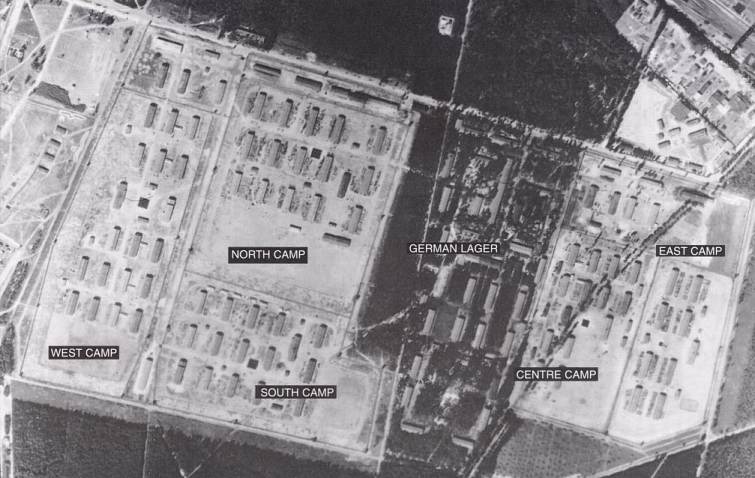
Aerial View of Stalag Luft III, Sagan, Germany
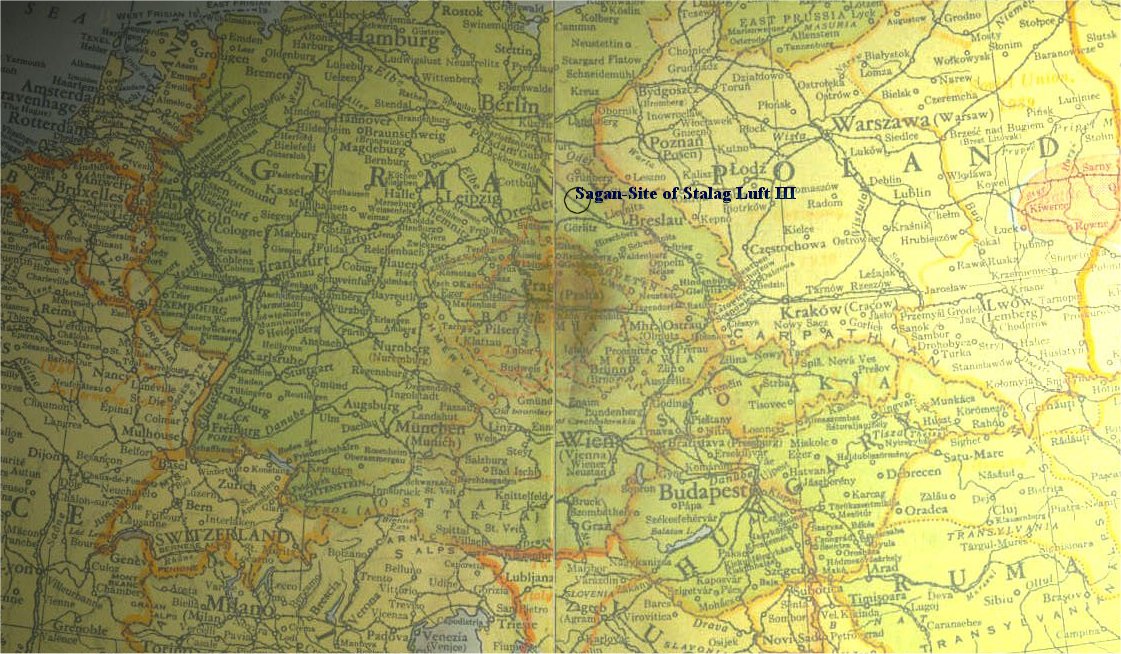
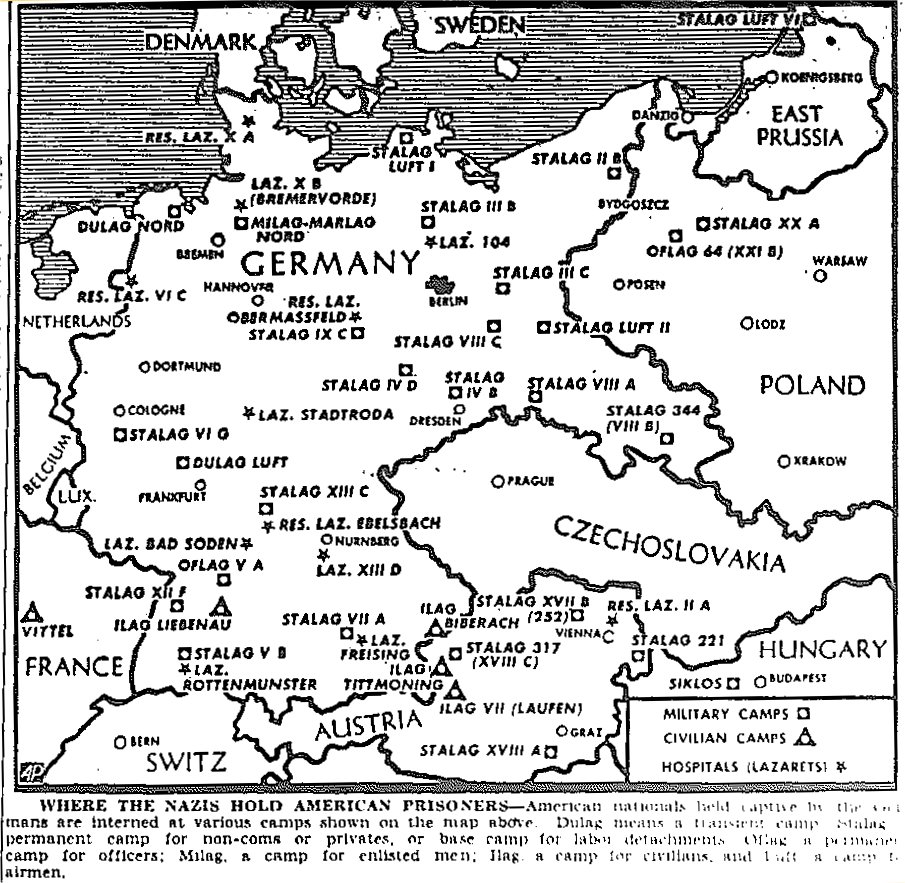
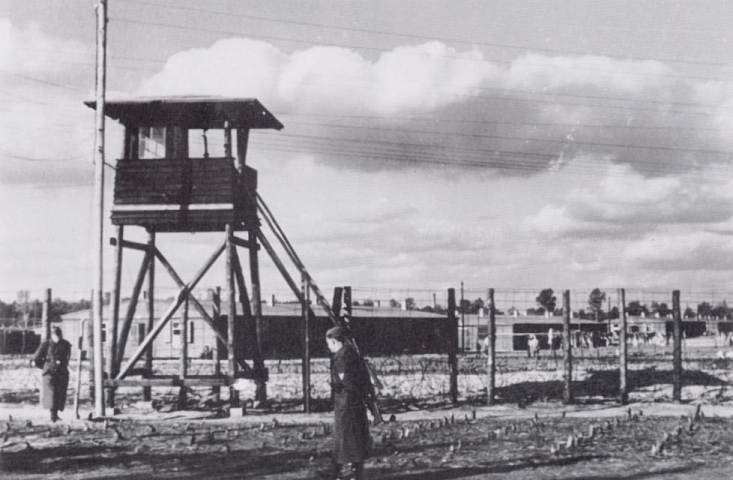
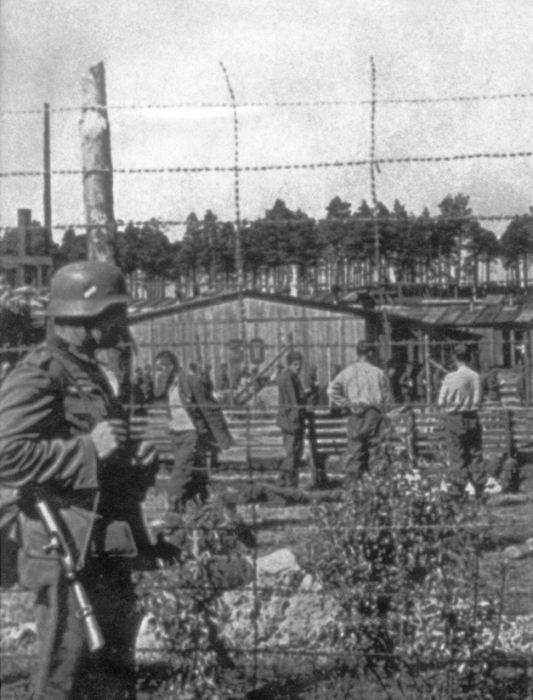
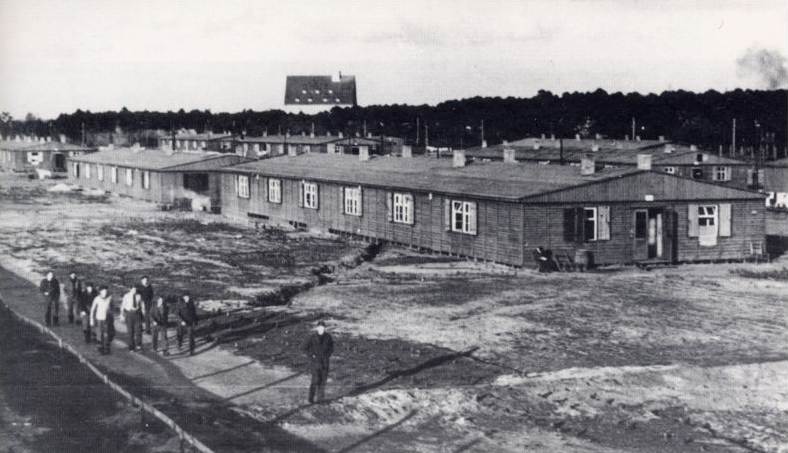
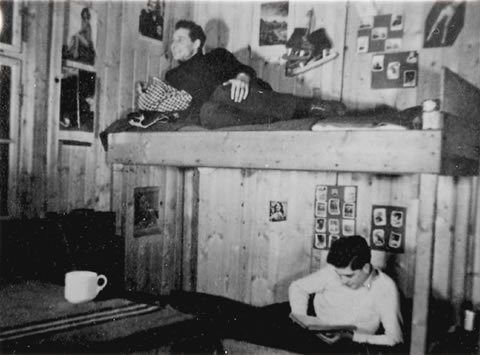
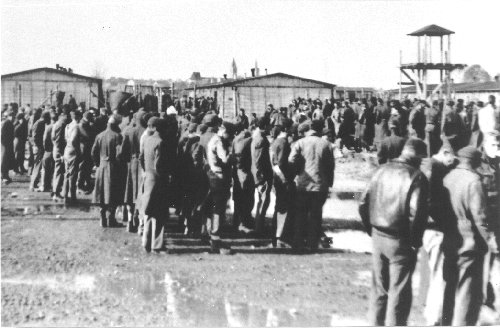
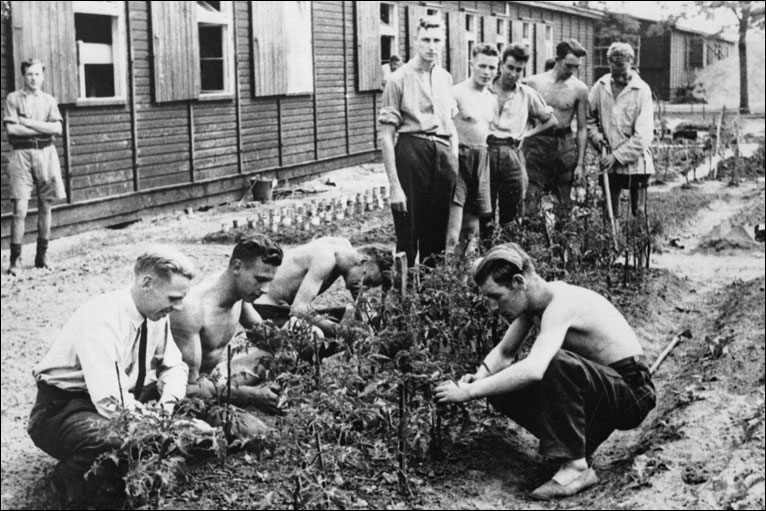
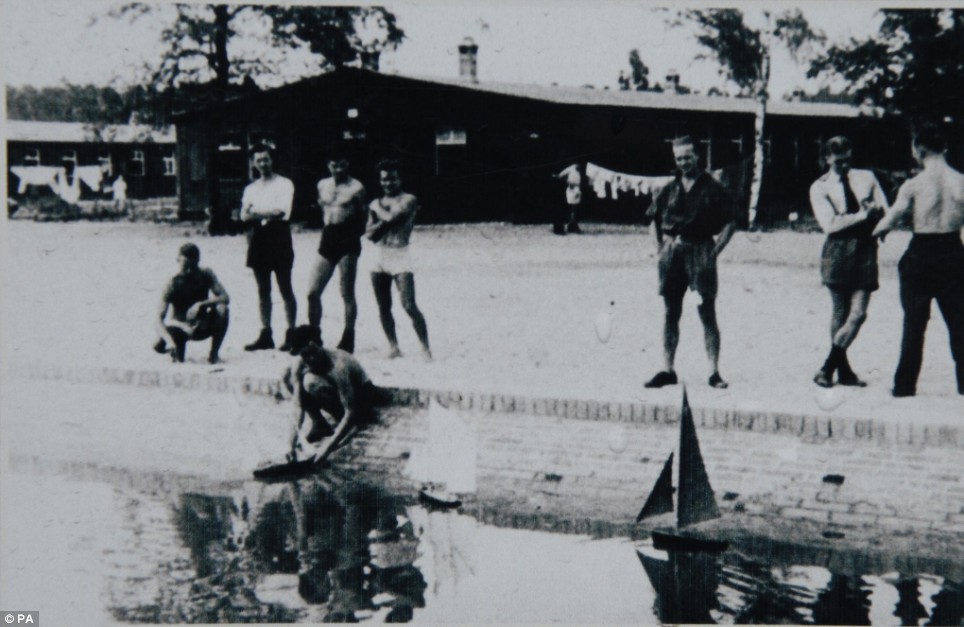
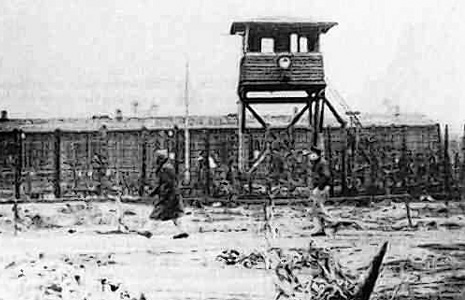
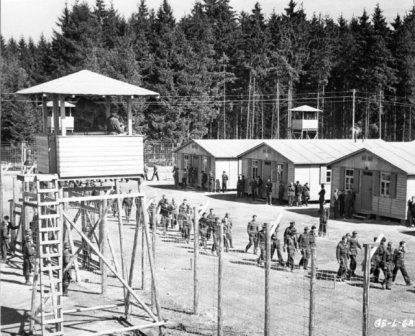
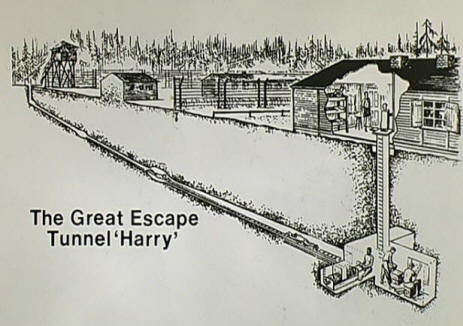
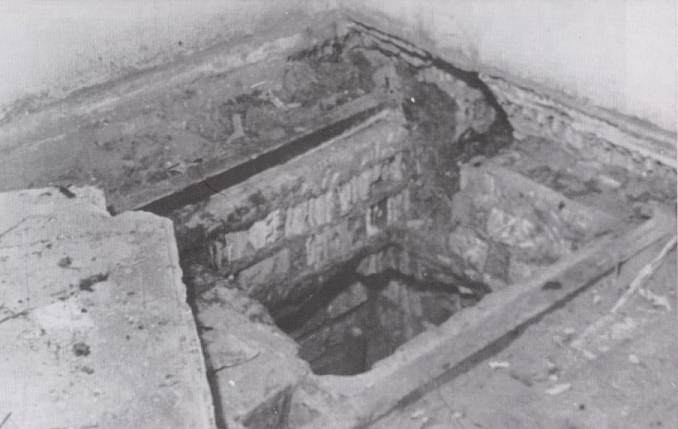
Entrance to Third and Only Active Escape Tunnel, "Harry"
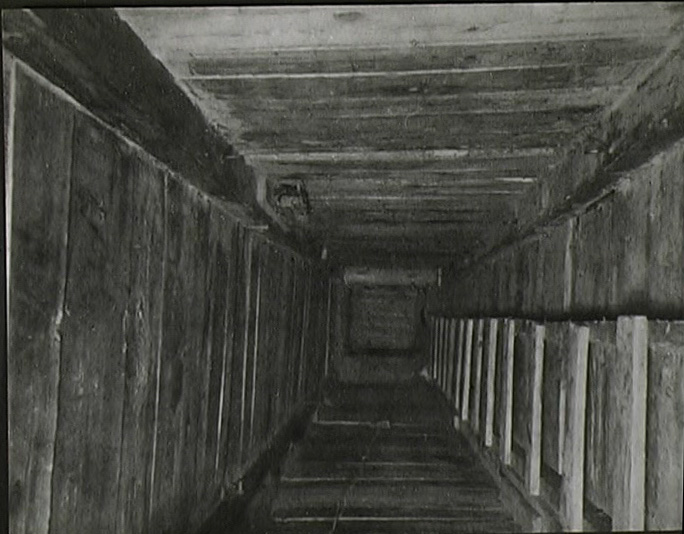
Interior of "Harry"
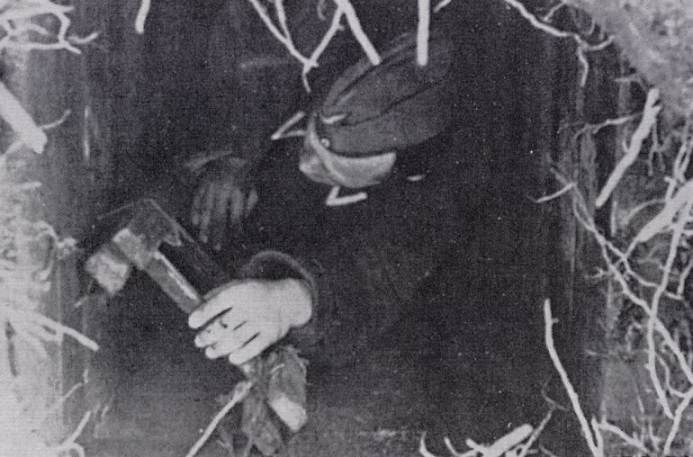
Exit of "Harry"
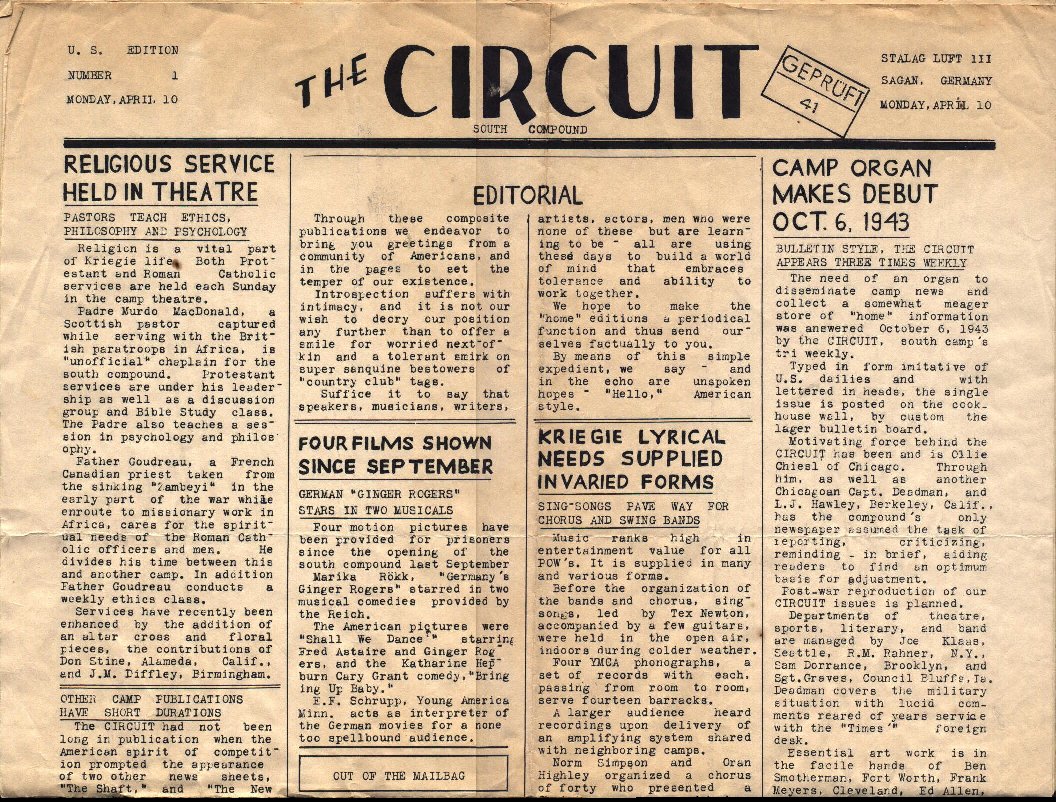
![]()
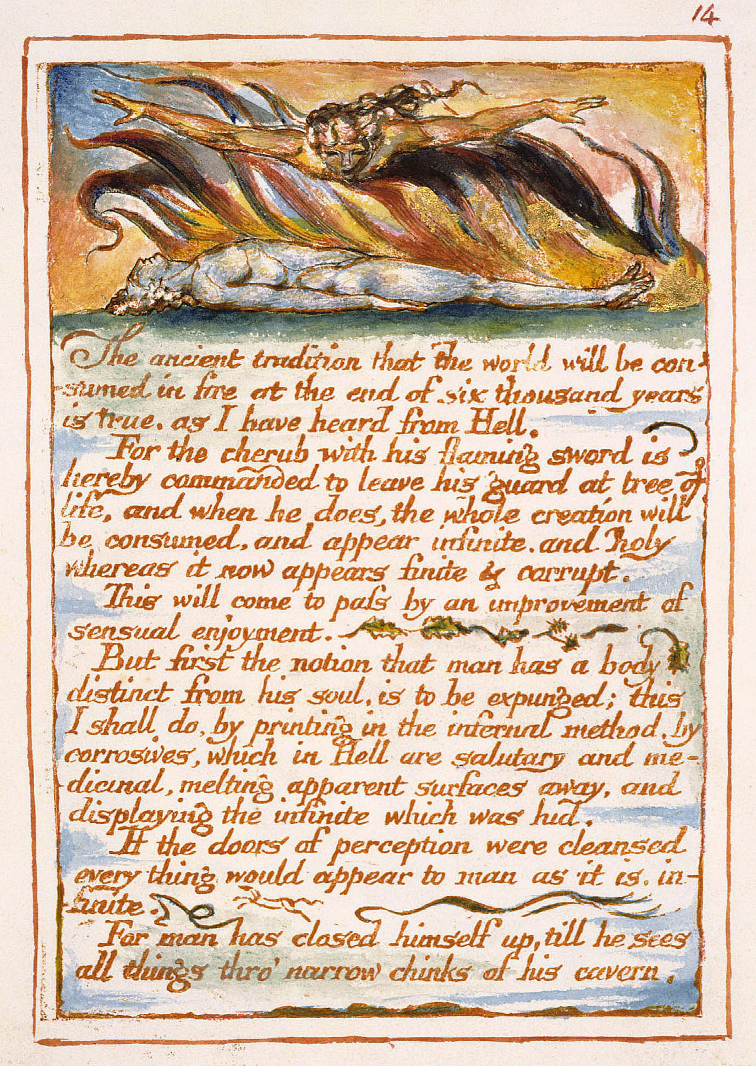
![]()
![]()
![]()